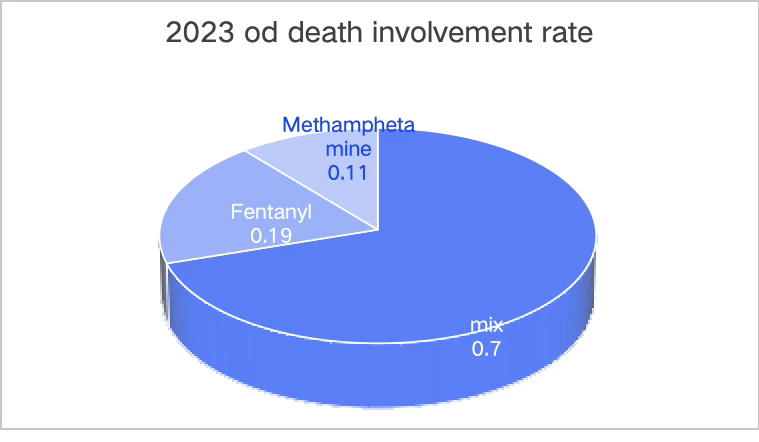If you have recently walked the streets of Portland or caught a glimpse of those tents in the alleys of San Francisco, you might wonder how many of these people are addicts. This is not just curiosity; it is a crucial issue related to public health, social policies, and even moral responsibility. In this blog, we have examined a lot of data to explore the complex relationship between the homeless and drug addiction, as well as how our society should respond.
How prevalent is drug use among the homeless?
A recent report from the University of California, San Francisco, indicates that among the 3,200 homeless adults surveyed, 65% admitted to using illegal drugs at least three times a week. In Portland, the figure is even higher from 53% to 88% of the homeless reported engaging in drug use, and it was not just "occasional experimentation", but rather long-term and habitual use.
What is even more worrying is that fentanyl and methamphetamine are rampant on the streets. In Portland, 89% of drug overdose deaths are related to fentanyl, and the usage rate of methamphetamine is as high as 81%. This means that if you see a homeless person using drugs on the street, they are very likely to be struggling with either one or both of these substances.
How difficult is drug rehabilitation? How many people manage to successfully quit?
Drug is easy to get, but drug rehabilitation is difficult. The success rates of drug withdrawal vary greatly depending on the type of drug:
Although the recovery rate for methamphetamine after the first year of withdrawal is approximately 40% - 60%, in the long run, only 6% of people remain sober three years later. After systematic treatment, the one-year withdrawal rate for cocaine can reach 25% - 75%, but the risk of relapse is extremely high, especially within 6 to 12 months after withdrawal. These figures tell us that drug rehabilitation is not a matter of will, but rather a long-term and difficult battle between the body and the mind.
The Drug Rehabilitation System in Portland: Challenges and Obstacles
However, Portland does have access to drug rehabilitation resources. The Hooper Detox Center offers services such as inpatient detoxification and medication-assisted treatment. However, the reality is that there are a severe shortage of beds. Each year, 2,700 people apply, but the center only has 65 beds, leaving nearly 60% of them rejected. The waiting time varies from a few weeks to several months, and many people relapse, go missing, or even die during this period. In other words, even if someone wants to quit drugs, the system is unable to accommodate them.
International Comparison: Different Approaches to Drug Addiction in Different Countries
The ways various countries deal with drug addiction vary greatly: China and South Korea often adopt compulsory detoxification, with the police repeatedly sending drug users to detox centers. Portugal has decriminalized drugs, treating drug use as a public health issue rather than a crime. The government provides free treatment, psychological support, and job training. Each of these models has its pros and cons, but they all point to a core question: Is the laissez-faire free-choice model truly applicable to the drug-ridden streets of the United States?
In the current situation, what we urgently need to do is to expand the resources for drug rehabilitation, increase the number of beds, and provide opportunities for those who have the intention to quit drugs to save themselves. After this, whether to adopt compulsory treatment or follow the Portuguese approach of support rather than punishment still requires much discussion. Behind today's figures are real people, they might be veterans, women who have suffered from domestic violence, patients with mental illnesses, or just ordinary people pushed into despair by the economic recession. Drug addiction is not their starting point, nor should it be their end point. The issue is not why they took drugs, but how we can build a society that can prevent ordinary people from completely falling into degradation during the economic recession.
References:
https://pubmed.ncbi.nlm.nih.gov/34224485/
https://centralcityconcern.org/recovery-location/hooper-detoxification-stabilization-center/?utm_source、https://www.rollinghillsrecoverycenter.com/methamphetamine/success-rates?utm_source=chatgpt.com#elementor-toc__heading-anchor-2


No comments:
Post a Comment